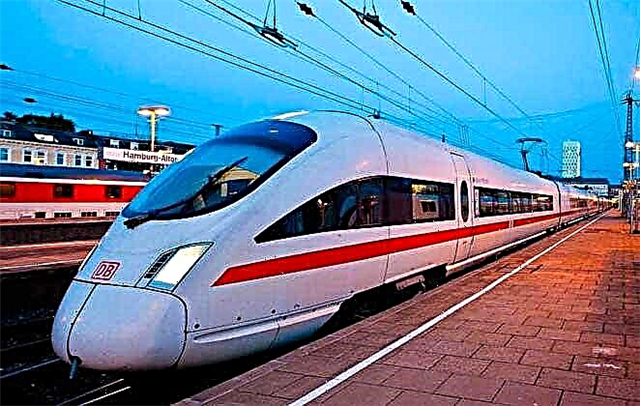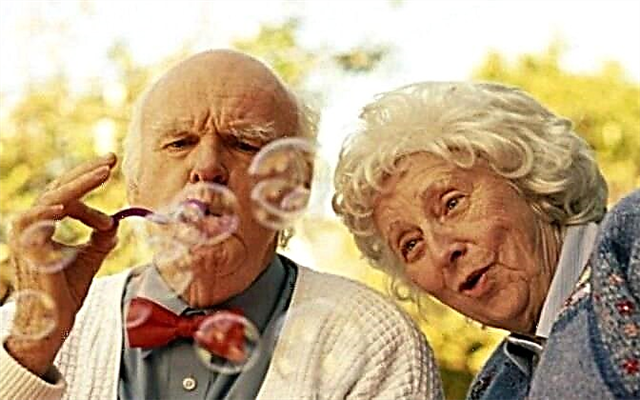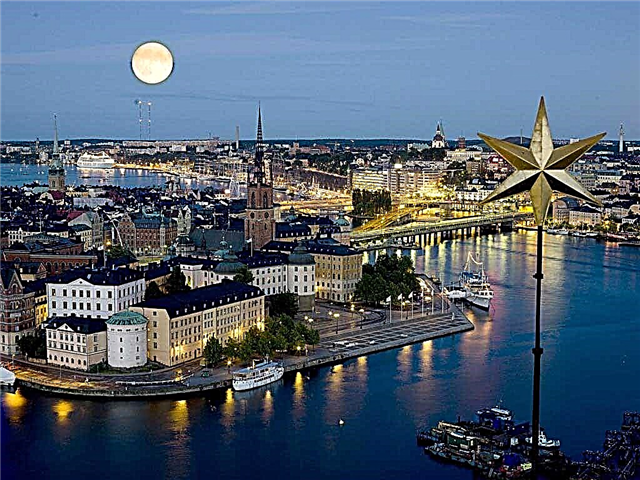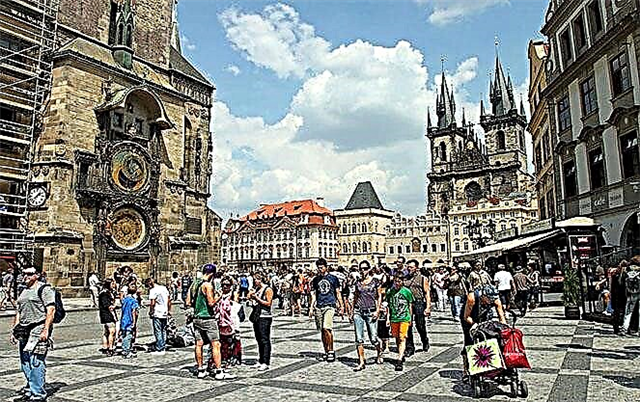The Czechs are by far the most prosperous nation in Eastern Europe according to the research of various international organizations. Since the economy in the country has a high level, life in the Czech Republic is stable and comfortable. Its residents can move freely within the European Union, real estate prices are lower than in Europe, and the average income level is several times higher than that of Russians. Importantly, the Czech Republic is famous for its historical monuments, comfortable climate, well-developed infrastructure and quality education.

How is life in the Czech Republic
In terms of the general standard of living, the Czech Republic (CR) is ahead of the border countries Poland and Slovakia. At the same time, prices in the Czech Republic are much lower than those of its richer neighbors - Austria and Germany. A characteristic feature of the social structure is the absence of significant differences among the majority of citizens in terms of property and social status. Simply put, there is not much difference between the poor and the rich.
You can summarize the main features of life in the Czech Republic:
- social stability,
- well-developed infrastructure, including the availability of transport for people with limited mobility,
- low crime rate,
- free education,
- clean streets and safe roads.
The standard of living in the country can be assessed using different indices. One of the most common in the world is gross domestic product (or GDP) per capita at purchasing power parity (PPP). In terms of this indicator ($ 33,232), the Czech Republic in 2021 ranked 20th in the overall ranking of European countries, and first among the states of the eastern part of Europe (data from the International Monetary Fund, IMF, published on the Worldatlas portal).
Average monthly income of residents
Average salaries in the Czech Republic strongly depend on which city to work in. Thus, residents of Prague have the highest income - about 1,390 euros per month, after deducting taxes, the amount is reduced to 1057 euros. The net salary of residents of other cities is on average: 925 euros in Brno, about 800 euros in Ostrava, 763 euros in Karlovy Vary.

Also, the salary will depend on the qualifications and level of education of the employee, the demand for the profession. In the Czech Republic, IT specialists, doctors, chemists are especially valued, their income reaches 2-3 thousand euros per month. Unskilled labor is estimated here at 500-700 euros per month.
Social benefits
As for social benefits for the population, in the Czech Republic, not only education in universities is free, but also medical services, study in schools and attendance at kindergartens.
Pensioners do not receive very much - about 450 euros per month (this is the minimum pension), however, they have significant privileges from the state - discounts on travel in transport, partial payment for summer vacations and treatment in sanatoriums.
For comparison, the cost of living in the Czech Republic in 2021 was 3,410 CZK or 131 euros. The physiological minimum, that is, the amount of funds that allows a person to survive, is 2,200 kroons or 85 euros.
In addition to state benefits, social insurance and social care are important components of the social security system in the Czech Republic. Hospital insurance provides benefits for sickness, as well as for pregnancy, childcare or family members.
Migrants in the Czech Republic for permanent residence or with a Czech residence permit are also entitled to receive state benefits here, in particular for children, apartment rent and utilities, unemployment and others.
Medical support
Medicine in the Czech Republic is at a fairly high level. Thus, the average life expectancy in the Czech Republic is about 78 years (women - 81 years, men - 75 years), according to this indicator, the Czechs occupy 38th place in the world.
If you have insurance, medical care is free, and you can count on the services of almost all specialists, except for the dentist.

There are also disadvantages - for uninsured persons, treatment in the Czech Republic will be very expensive, and migrants in the Czech Republic with a residence permit are required to purchase health insurance on their own (550-650 euros per year).
Prices in the Czech Republic
Prices in the Czech Republic are quite reasonable, as in other Eastern European countries. Even after deducting all taxes from their salaries, citizens still have enough money to spend on food, clothing, transportation, housing, or other purchases.
As the comparison of living standards in Russia and in the Czech Republic in terms of PPP shows, the average citizen of the Chechen Republic has 60% more opportunities to buy goods and services than a Russian.
Buying and renting real estate
The real estate market in the Czech Republic has been stable over the past decades, which is another confirmation of the high level of well-being of citizens. In Prague, the price of 1 m2 is about 3,100 euros, in other cities the cost of housing is lower - about 2,200 euros per m2. You can buy a 2-room apartment in the capital for 130 thousand, on average in the country - for 50-70 thousand euros.
Monthly rental housing in the Czech Republic also depends on many factors, but the average is:
- for a 1-room apartment:
- about 500 euros in the city center,
- 400 euros - on the outskirts,
- for a 3-room apartment:
- 850 euros - in the center,
- 630 euros - on the outskirts.
Apart from rent, living expenses also include utility bills. In general, utility bills per month (for gas, water, electricity, garbage) will cost 80-160 euros (2-4 thousand Czech crowns), depending on the area of the apartment (from 30 to 80 m2).
Food cost
The cost of living in the Czech Republic strongly depends on food prices, which are not too different from Russian ones. Of course, if you do not eat every day in expensive restaurants designed more for tourists, but buy food in ordinary supermarkets.

Average prices (in euros) by country for selected food items in the food basket (current data according to Numbeo):
- liter of milk - 0.69,
- loaf of fresh white bread - 0.85,
- a kilogram of rice - 1.27,
- 12 eggs - 1.62,
- local cheese - 7.08 per kilogram,
- chicken breasts - 5.28 per kilo,
- a kilogram of beef or other red meat - 8.50,
- a kilogram of apples or bananas - 1.18,
- tomatoes (1 kg) - 0.61,
- onions (1 kg) - 0.55,
- one and a half liters of water - 0.48,
- a bottle of wine - 4.24,
- local beer (0.5 l) - 0.57,
- imported beer (0.33 l) - 1.05,
- Marlboro cigarettes, 20 pieces - 3.86.
Lunch in a regular cafe for 1 person will cost about 4-5 euros, for two in a more expensive restaurant - already 20-30 euros. Local beer here will cost about 1 euro for 0.5 l, and a cup of cappuccino - 1.65 euro.
Fare in the Czech Republic
The Czech Republic has a very convenient transport infrastructure. Public transport in the Czech Republic copes with its functions perfectly. Everything runs exactly on schedule, so getting to work on time is easy, even for suburbanites. A one-way ticket costs € 0.93, and a monthly pass costs € 19.28.
As for gasoline prices, a liter of fuel is sold for 1.16-1.31 euros. Moreover, it was noticed that the cost directly depends on the price of oil: if it grows, the price of gasoline also rises.
Cultural and emotional characteristics of Czechs
Most Czechs are calm, good-natured and non-conflicting. They are also distinguished by their practicality, hard work and the desire to develop professionally, while status or luxurious things are not especially important for them.
Czechs are accustomed to foreigners, since tourism is one of the main sectors of the economy here, and they are quite hospitable. Especially appreciated in the Czech Republic if expats try to speak Czech.
The Czech language is considered difficult. To learn it at a level sufficient to maintain an informal conversation, you need to live in the country for at least several years.
How Russians are treated in the Czech Republic
The Russian community is one of the largest in the Czech Republic, but the organizations are very scattered throughout the country. One of the largest - "Russian Tradition" is located in Prague. Her tasks are the preparation of creative, sporting events, legal assistance, the publication of newspapers and books.
There are also many Russian tourists in the Czech Republic - about 600 thousand in 2021 alone. The attitude of the Czechs to the Russians can be called even. Provided that Russians in the Czech Republic respect local traditions and language, behave politely and culturally, there are no problems with residents.
Czechs are not interested in political relations between Russia and Ukraine; their own well-being is more important to them.
Let's summarize
Before deciding to move, it is important to weigh the pros and cons of living in the Czech Republic. The obvious advantages are free movement within the EU, free education, access to quality health care, and wide employment opportunities. There are affordable prices for food, rental housing and real estate, well-developed infrastructure, low crime and corruption rates, a wonderful climate and beautiful nature.
The negative aspects include remoteness from seaside resorts, the complexity of the Czech language for learning, bureaucracy in government agencies, the high cost of utilities and gasoline. However, with some effort, all the disadvantages are surmountable, and then you are guaranteed a calm and prosperous life in one of the most successful European countries.











